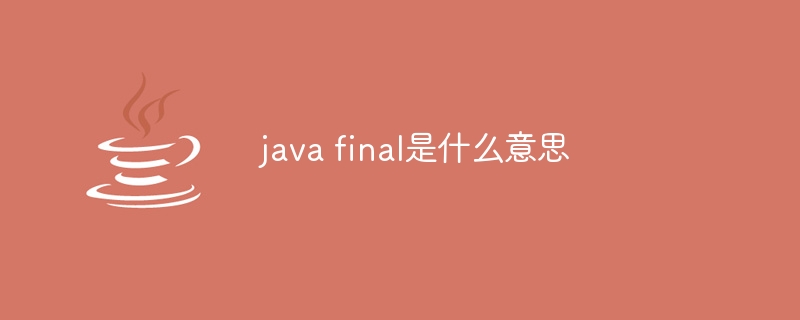
In Java, final means immutability, including that final classes cannot be inherited, final methods cannot be overridden, and final variables are constants and cannot be changed. Benefits of using final include improved security, performance, and readability. Final should be used in scenarios where there is no need to inherit, change the implementation, or change the value.

The meaning of final in Java
What is final?
In Java, final is a keyword that indicates that a class, method or variable cannot be changed, that is, once their value or state is set, it cannot be changed.
The meaning of final class
The meaning of final method
The meaning of final variables
Benefits of using final
The benefits of using the final keyword include:
When to use final?
Final should be used in the following situations:
The above is the detailed content of What does java final mean?. For more information, please follow other related articles on the PHP Chinese website!




